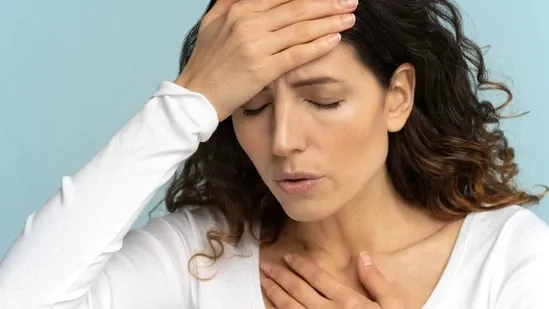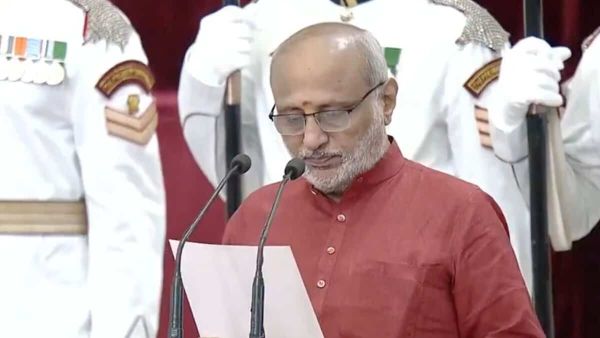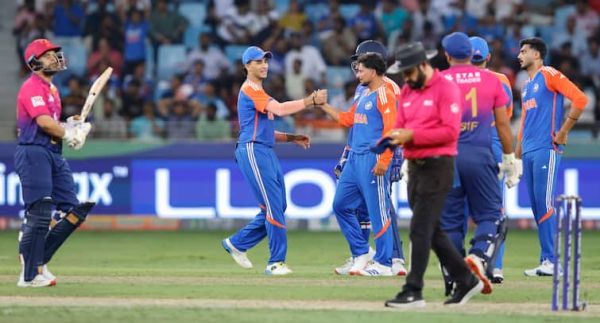Ignoring hypotension could be fatal: Cardiologist shares 7 simple tips to manage low blood pressure
admin | September 6, 2025 3:22 PM CST

Most people worry about high blood pressure, but what about when it is too low? Low blood pressure, or hypotension, does not get as much attention because people think it is not serious.
But that is not true. A sudden drop in blood pressure can deprive your brain and heart of oxygen, leading to dizziness, fainting, falls, or even life-threatening complications if left unmanaged. It is especially common among older adults, but anyone can be at risk depending on their health, medications, or lifestyle. However, hypotension can be managed easily with a few simple lifestyle changes. A leading cardiologist shares top life-saving tips to help you stabilise your blood pressure and avoid serious health issues before it is too late.
What is the normal blood pressure and what is too low?
Normal blood pressure typically ranges between 90/60 mmHg and 120/80 mmHg. Anything below 90/60 mmHg is considered low and can cause symptoms like fatigue, lightheadedness, blurry vision, or fainting. While hypotension can be harmless for some, for others it signals underlying problems, Dr Rahul Gupta, Cardiologist, Gleneagles Hospital, tells Health Shots. Causes of low blood pressure include:
 4. Try wearing compression stockings
"Compression stockings help prevent blood from pooling in the legs, which is a common cause of dizziness and fainting in people with low blood pressure," suggests Dr Gupta. They improve blood circulation and encourage blood to flow back to the heart. These are especially helpful for people who stand for long periods or experience symptoms when standing up.
5. Do not change your position suddenly
Getting up too quickly from sitting or lying down can cause a sharp drop in blood pressure, leading to lightheadedness or fainting, a condition known as orthostatic hypotension. Always change positions slowly and carefully. Swing your legs over the side of the bed before standing, and pause between movements.
6. Bid adieu to alcohol
Alcohol acts as a vasodilator, meaning it widens your blood vessels, which can further lower your blood pressure. It also causes fluid loss and dehydration. Reducing or completely cutting out alcohol can significantly stabilize your readings and reduce hypotension-related symptoms over time.
7. Check your blood pressure regularly
Many people live with low blood pressure without knowing it, until they faint or feel constantly tired. "Regular monitoring helps you spot patterns and get treatment early. Use a home BP monitor or visit your doctor for frequent checks," explains Dr Gupta. If your readings are consistently low or your symptoms worsen, seek medical help promptly.
4. Try wearing compression stockings
"Compression stockings help prevent blood from pooling in the legs, which is a common cause of dizziness and fainting in people with low blood pressure," suggests Dr Gupta. They improve blood circulation and encourage blood to flow back to the heart. These are especially helpful for people who stand for long periods or experience symptoms when standing up.
5. Do not change your position suddenly
Getting up too quickly from sitting or lying down can cause a sharp drop in blood pressure, leading to lightheadedness or fainting, a condition known as orthostatic hypotension. Always change positions slowly and carefully. Swing your legs over the side of the bed before standing, and pause between movements.
6. Bid adieu to alcohol
Alcohol acts as a vasodilator, meaning it widens your blood vessels, which can further lower your blood pressure. It also causes fluid loss and dehydration. Reducing or completely cutting out alcohol can significantly stabilize your readings and reduce hypotension-related symptoms over time.
7. Check your blood pressure regularly
Many people live with low blood pressure without knowing it, until they faint or feel constantly tired. "Regular monitoring helps you spot patterns and get treatment early. Use a home BP monitor or visit your doctor for frequent checks," explains Dr Gupta. If your readings are consistently low or your symptoms worsen, seek medical help promptly.
- Dehydration
- Heart conditions like bradycardia or heart failure
- Endocrine disorders such as hypothyroidism
- Blood loss or internal bleeding
- Certain medications, including those for high BP or depression
- Nutritional deficiencies, especially in vitamin B12 and folate
- Ageing, particularly in people over 70
 4. Try wearing compression stockings
"Compression stockings help prevent blood from pooling in the legs, which is a common cause of dizziness and fainting in people with low blood pressure," suggests Dr Gupta. They improve blood circulation and encourage blood to flow back to the heart. These are especially helpful for people who stand for long periods or experience symptoms when standing up.
5. Do not change your position suddenly
Getting up too quickly from sitting or lying down can cause a sharp drop in blood pressure, leading to lightheadedness or fainting, a condition known as orthostatic hypotension. Always change positions slowly and carefully. Swing your legs over the side of the bed before standing, and pause between movements.
6. Bid adieu to alcohol
Alcohol acts as a vasodilator, meaning it widens your blood vessels, which can further lower your blood pressure. It also causes fluid loss and dehydration. Reducing or completely cutting out alcohol can significantly stabilize your readings and reduce hypotension-related symptoms over time.
7. Check your blood pressure regularly
Many people live with low blood pressure without knowing it, until they faint or feel constantly tired. "Regular monitoring helps you spot patterns and get treatment early. Use a home BP monitor or visit your doctor for frequent checks," explains Dr Gupta. If your readings are consistently low or your symptoms worsen, seek medical help promptly.
4. Try wearing compression stockings
"Compression stockings help prevent blood from pooling in the legs, which is a common cause of dizziness and fainting in people with low blood pressure," suggests Dr Gupta. They improve blood circulation and encourage blood to flow back to the heart. These are especially helpful for people who stand for long periods or experience symptoms when standing up.
5. Do not change your position suddenly
Getting up too quickly from sitting or lying down can cause a sharp drop in blood pressure, leading to lightheadedness or fainting, a condition known as orthostatic hypotension. Always change positions slowly and carefully. Swing your legs over the side of the bed before standing, and pause between movements.
6. Bid adieu to alcohol
Alcohol acts as a vasodilator, meaning it widens your blood vessels, which can further lower your blood pressure. It also causes fluid loss and dehydration. Reducing or completely cutting out alcohol can significantly stabilize your readings and reduce hypotension-related symptoms over time.
7. Check your blood pressure regularly
Many people live with low blood pressure without knowing it, until they faint or feel constantly tired. "Regular monitoring helps you spot patterns and get treatment early. Use a home BP monitor or visit your doctor for frequent checks," explains Dr Gupta. If your readings are consistently low or your symptoms worsen, seek medical help promptly.
READ NEXT
-
C P Radhakrishnan takes oath as 15th Vice President of India

-
India pulls up Switzerland, Pakistan at UN meet in Geneva

-
Oracle's blockbuster surge shows AI trade's growing influence on market

-
India vs Pakistan, Playing XI: Star Bowler At Risk Of Being Benched

-
Shahid Afridi Revives ‘Rotten Egg’ Remark, Appears Directed At Shikhar Dhawan
